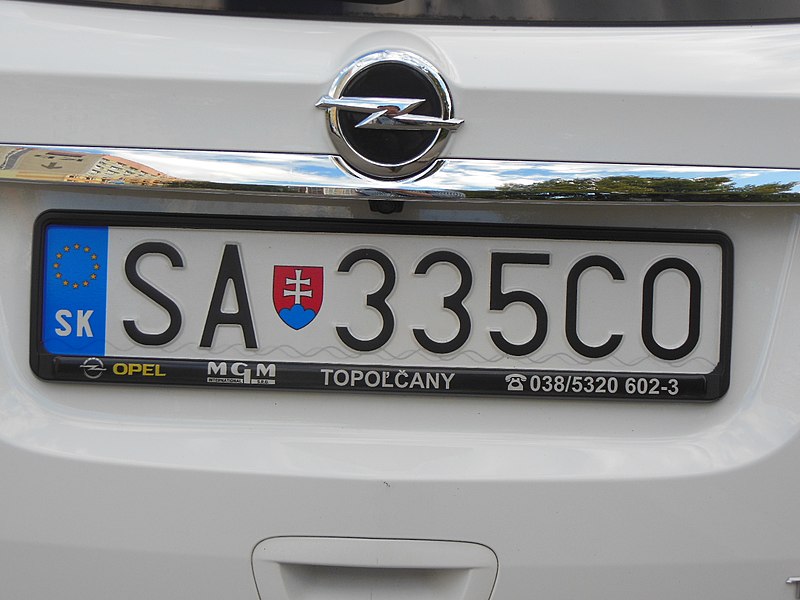None of us likes interacting with bureaucracy. Filling out documents, spending hours in queues, and arguing with officials about formal details – many comedy movies have been built around these situations.
In Slovakia, one of the least popular offices is the Police Traffic Inspectorate, and, more specifically, the Vehicle Registration Department. Yes, you read it correctly – Slovakia is one of three countries in EU28 where the vehicle registry agenda is fully run by the police.
Not only you have to visit your county police station every time you want to make any kind of change regarding your vehicle, you also need to buy a new set of license plates when the vehicle moves to a different county (for example, when the owner moves, or sells the vehicle).
And there are many counties in Slovakia (out of 150 Slovak cities, half of them are county seats), so the license plates are shuffled like a deck of cards on a Saturday night in Vegas.
License plates (almost 1 million pieces are consumed each year) are supplied to the state by a private provider. It has been the same supplier for 23 years, since the Ministry of Interior did not bother to tender.
More absurdly, the producer was able to obtain copyright protection on the design of the license plate (interviewed Slovak lawyers considered this illegal), thus granting the company a well-defended monopoly.
As a result, the Slovak Republic has been buying license plates 3-times more expensive than the Czechs.
In over two decades, Slovak taxpayers lost tens of millions of euros due to the inefficient purchasing.
INESS has been long campaigning for a complex overhaul of the vehicle registry system. We prepared a reform paper which focused on several reform steps:
-
Breaking the monopoly and tendering license plate provider;
-
Tying the license plate to the vehicle. This would prevent the unnecessary swapping of the license plates;
-
Un-tying the vehicle registry from a permanent residence address. Vehicle owners would not be required to visit the offices in the county of their permanent residence, and instead would be allowed to use any office around the country;
-
Competence move from the hands of the (expensive) police force to the hands of civil administration.
We have joined forces with one of the biggest Slovak dailies (Sme), which published a series of commentaries about the topic and focused attention on the most scandalous part – the license plate production monopoly.
It took almost 2 years of continuous pressure, but finally, it seems the ice started breaking. Slovak Ministry of Interior officially announced a tender for a license plate supplier.
INESS will now monitor the tender closely for any foul play and will continue to lobby for a complex reform.



